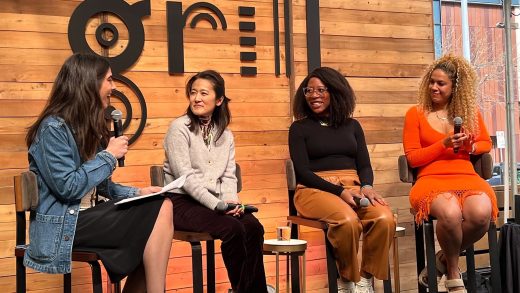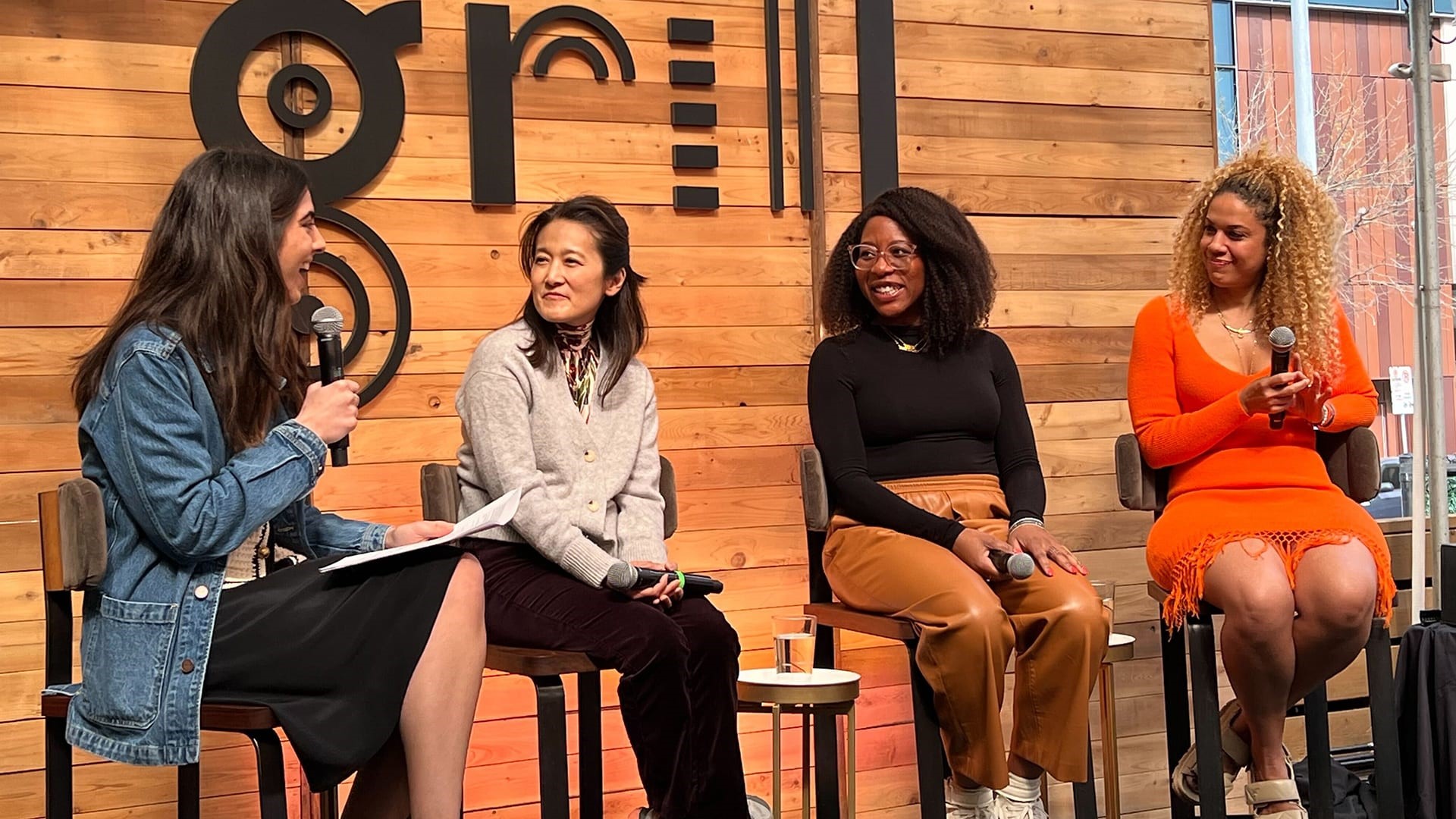Figuring out Hollywood’s new script in a post-strike era
Figuring out Hollywood’s new script in a post-strike era
Fast Bites: Recapping highlights from the “Hollywood’s New Script” panel at the 11th annual Fast Company Grill at SXSW.
BY Yasmin Gagne
Hollywood experienced a massive upheaval last summer when members of the Writers Guild of America and SAG-AFTRA went on strike over streaming residuals and the potential impact of AI on the job market and their work. After such a mass upheaval in the status quo, it’s hard to imagine anything being the same.
The Fast Company Grill at SXSW brought together Amy Aniobi, founder of production company SuperSpecial; Charlotte Koh, Lionsgate’s executive vice president of acquisitions and co-productions; and Carri Twigg, cofounder and head of development at Culture House Media to discuss Hollywood’s new script.
Finding the balance with AI
One of the main points of contention in the historic strike last year was how to create guardrails around the use of AI. As studios seek to maximize profits, generative AI would seem like an attractive option to churn out scripts at a fraction of the cost. It’s a fear that’s been rippling widely across the creative industry. But Aniobi sees the potential of how AI can be an additive tool to her process.
“Building decks as a director, I have the hardest time finding comps for images from films that have Black leads that aren’t involved in trauma experiences,” Aniobi said. “So I actually have been working with a deck editor to make AI images to build as my comps because they don’t exist. In that way, AI is a beautiful tool that we can use. But when we make the incorrect assumption that AI can replace human interaction, that’s where I think it becomes a terrible thing.”
“Part of that bounceback between me and a neighbor coming up with an idea is not to get to the solution the fastest,” Aniobi continued. “It’s to ideate. It’s to iterate. It’s to find another solution that we never thought of. And that only comes from person to person.”
Having a wider spectrum of stories
Movie theaters never fully recovered coming out of the pandemic. While recent blockbusters such as Barbie and Oppenheimer proved theatergoers will still show up en masse, theater attendance overall is still lagging 20% to 25% behind pre-pandemic levels. To some, the in-person movie experience isn’t dying completely—it’s just evolving. And Koh is hopeful that part of that evolution will welcome bigger creative swings from studios.
“I do feel like the return of folks feeling more comfortable gathering is going to allow us to have a wider spectrum of stories in the theaters,” Koh said. “When you’re in a contractive mindset, then people tend to be more conservative and say, ‘I just want to keep making this stuff that worked before.’ When you’re in a more expansive mindset and you see different audiences come back to the theater, then you’re more willing to take bets.”
Bridging the disconnect between creators and studios
America First Legal, a group founded by former Trump adviser Stephen Miller, has been coming after networks and studios, including CBS and Disney, claiming discrimination against white men due to employment practices aimed at increasing diversity among marginalized groups. To Twigg, that pushback against more inclusivity was only bolstered by Disney CEO Bob Iger saying last year that the studio has lost its way with prioritizing films with a “message.”
“[It] was a pretty profoundly, in my view, irresponsible thing to say,” she said. “I think that there’s an argument to be made and a discussion to be had about how and when social messaging shows up in film. But when you say that in the political and media climate that we live in, it just won’t be heard, I think, with the intention that he said it with.”
“I think that this fundamentally goes back to [the strike],” Twigg went on, “where you have an adversarial relationship between the people who are creating stories and the people who are funding them.”
(11)



